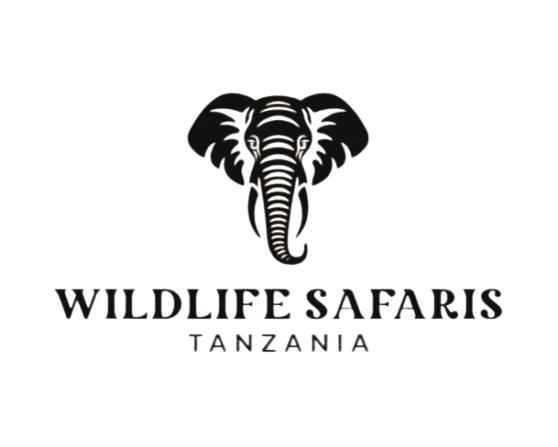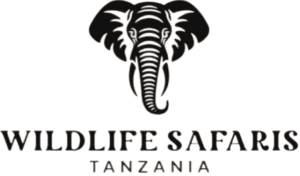Wildlife Safaris Tanzania: FAQs
Planning a wildlife safari in Tanzania comes with excitement—and lots of questions. To help you prepare for an unforgettable adventure, here are the most important and frequently asked questions travelers ask before visiting Tanzania’s world-famous parks.
1. When is the best time to go on a wildlife safari in Tanzania?
Tanzania is great year-round, but the dry season (June–October) offers the best wildlife viewing.
For the Great Migration, the timing depends on what you want to see:
-
Calving Season (Ndutu/South Serengeti): December–March
-
Grumeti River Crossings: May–June
-
Mara River Crossings: July–October
2. Which national parks are the best for wildlife safaris?
Tanzania is home to some of Africa’s greatest safari destinations, including:
-
Serengeti National Park – Great Migration, predators
-
Ngorongoro Crater – Big Five in a compact caldera
-
Tarangire National Park – elephants & baobabs
-
Lake Manyara National Park – tree-climbing lions
-
Nyerere National Park (Selous) – boat safaris & wild dogs
-
Ruaha National Park – remote, wild, and full of big cats
-
Mikumi, Katavi, Mahale, Gombe, Rubondo – off-beaten-path wonders
3. What wildlife can I expect to see?
Tanzania is home to the Big Five:
-
lion
-
elephant
-
buffalo
-
leopard
-
rhino
You can also see:
-
cheetahs
-
giraffes
-
zebras
-
wildebeests
-
hippos
-
crocodiles
-
hyenas
-
wild dogs
-
flamingos
-
over 1,000 bird species
Every park offers its own mix of wildlife and special encounters.
4. How many days should I spend on safari?
Most travelers choose 5–10 days.
Recommended durations:
-
Northern Circuit: 7–10 days
-
Southern Circuit: 5–8 days
-
Western Tanzania (Katavi, Mahale): 7–12 days
A longer safari gives you better wildlife diversity and a slower, more enjoyable pace.
5. Is Tanzania safe for safari travelers?
Yes. Tanzania is one of Africa’s safest safari destinations.
You’ll be accompanied by trained guides, and national parks are secure. Follow your guide’s instructions, avoid walking alone at night in camps, and you will be safe.
6. Do I need a visa to visit Tanzania?
Most travelers require a visa.
Options include:
-
Online eVisa
-
Visa on arrival
It’s recommended to apply online before travel. A valid passport with at least 6 months remaining is required.
7. What should I pack for a Tanzania safari?
Bring:
-
neutral-colored clothing
-
light layers
-
sunhat & sunscreen
-
binoculars
-
camera
-
comfortable walking shoes
-
insect repellent
-
reusable water bottle
-
warm jacket for early mornings
Avoid bright colors and camouflage clothing.
8. What types of safari accommodations are available?
Tanzania offers:
-
luxury lodges
-
tented camps
-
mid-range lodges
-
budget campsites
-
exclusive mobile migration camps
Most accommodations include meals, parking, guides, and scenic views.
9. Can I see the Great Wildebeest Migration?
Yes—Tanzania hosts most of the migration. Timing depends on location:
-
South Serengeti/ Ndutu: December–March (calving season)
-
Western Corridor/ Grumeti: May–June
-
North Serengeti: July–October (river crossings)
10. Are safaris suitable for children?
Absolutely. Many lodges offer family cottages, kids’ programs, and special guides.
For very young children, shorter game drives are recommended.
11. Do safaris include food and drinks?
Most safari packages include:
-
full-board meals
-
drinking water
-
picnic lunches during game drives
Luxury lodges often include soft drinks, tea, coffee, and sometimes alcoholic beverages.
12. How do I get around Tanzania?
Common options:
-
4×4 safari vehicles
-
domestic flights (fly-in safaris)
-
private transfers
Road travel between parks is scenic but can take several hours.
13. Do I need vaccinations for Tanzania?
Recommended vaccinations include:
-
Yellow fever (required if coming from a yellow-fever country)
-
Hepatitis A & B
-
Typhoid
-
Tetanus
-
Malaria prevention tablets
Consult your travel clinic before traveling.
14. What is a typical day on safari like?
A classic safari day includes:
-
Early morning game drive
-
Breakfast in camp
-
Midday rest
-
Afternoon/evening game drive
-
Dinner around a campfire
Each day brings new wildlife moments and scenic beauty.
15. How do I choose a safari company?
Choose a company with:
-
certified guides
-
excellent reviews
-
reliable vehicles
-
transparent pricing
-
knowledge of migration patterns
-
ethical wildlife practices
A good operator makes all the difference on safari.
Conclusion
A wildlife safari in Tanzania offers life-changing encounters, breathtaking landscapes, and unforgettable moments. This FAQ guide gives you everything you need to prepare with confidence and excitement for your journey into Africa’s wild heart.


